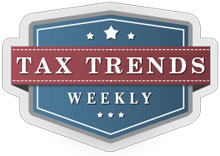Max Baucus’s Office Has Been the Starting Point for Many Tax Lobbyists
Max Baucus, a Democratic Senator from Montana, recently announced that he will not seek re-election in 2014. By virtue of his position as chairman of the Senate Finance Committee, Baucus is a powerful player in any overhaul of the U.S. tax code. In recent months, the New York Times and the Washington Post have run stories on the unusually large number of former Baucus staffers- at least 28 by the Post’s account- who have gone on to become tax lobbyists.
No one has suggested improper behavior by the lobbyists or by Baucus; in fact, Baucus has rebuffed former staffers’ suggested changes to the tax laws many times. But sources quoted by the newspapers agreed that former Baucus staffers have greater access to tax policy discussions. As is often the case with lobbyists, their input may be given special attention because of their personal relationship with a legislator. Even if there is no quid pro quo arrangement, lobbyists often can create that impression because they develop and maintain relationships with an eye toward influencing policy. For example, one former Baucus aide stated that staying active in Baucus’s tax network requires efforts to help Baucus politically, such as through fundraisers.
While Baucus plans to retire in 2014, the consensus in D.C. is that he will be active on the subject of tax reform. With all kinds of tax issues at stake- green energy subsidies, a lower corporate tax rate, and accelerated depreciation, to name just a few- businesses will pay lobbyists handsomely to get the ear of Baucus.

